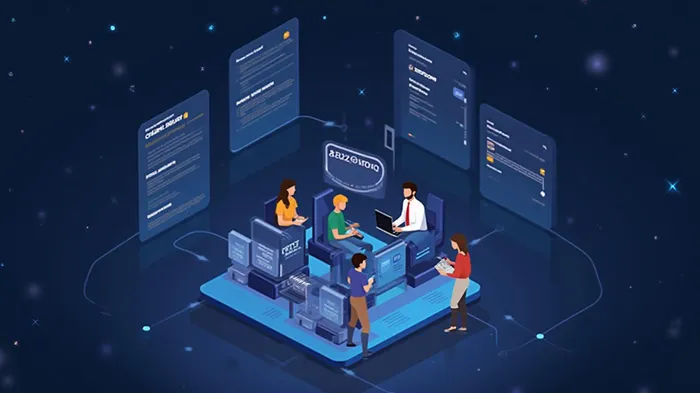CoinDCX Launches Okto SDK to Simplify Web3 Adoption
On May 17, CoinDCX Co-founder Neeraj Khandelwal announced the launch of the OktoOKTA-- SDK developer toolkit, a significant resource aimed at simplifying Web3 adoption. The toolkit introduces features such as social login and gasless transactions, which are designed to ease user interactions in blockchain applications. Khandelwal highlighted that these features can reduce concerns related to seed phrases and technical barriers, making blockchain technology more accessible to a broader audience. The toolkit's unified features for onboarding, login, and transactions support more accessible processes for various blockchain applications and use cases.
The Okto SDK developer tool is designed to assist developers by managing connectivity, abstraction, and transactions automatically. This simplifies multi-chain integration without requiring deep knowledge of each blockchain’s token mechanics. Developers can focus on building features rather than handling low-level chain interactions. The toolkit supports account abstraction and automated transaction execution across networks, reducing development barriers while maintaining clear operational workflows for each integration. It serves as a plug-and-play resource for new Web3 projects seeking quick setup, aiming to lower friction for developers entering blockchain environments.
The toolkit offers embedded wallets that apps can include directly for user convenience. Users can log in with email addresses or one-time codes instead of seed phrases, lowering barriers for those unfamiliar with typical blockchain login procedures. Gas abstraction removes the need for users to hold native tokens to cover transaction fees, simplifying fees and login flows to help everyday users adopt blockchain applications easily. These features align with broader goals of supporting Web3 adoption and accessibility, promoting straightforward user journeys without requiring specialized technical knowledge.
Security features include policy-driven tools for defining transaction permissions per user session. Session keys allow delegated access without compromising full account control. Built-in cross-chain swap support helps applications connect various ecosystems smoothly. Liquidity routing features let developers route assets without building custom bridges, reducing repetitive work for each chain integration scenario. This approach maintains security while speeding up the deployment of new blockchain apps. Policy tools support compliance and customizable user experiences across scenarios.
The Okto SDK developer tool works with frameworks like React, Flutter, Unity, and TypeScript, offering multi-platform compatibility. This allows developers to choose familiar environments to build applications. Support for EVM and non-EVM chains removes the need for chain-specific development work, reducing time to market for new blockchain applications across diverse networks. Developers can reuse code and components without rewriting for each chain integration, supporting rapid iteration and easier maintenance over the application lifecycle. This flexibility helps teams maintain consistent user experiences regardless of underlying blockchain choices.
Okto’s grants program offers developers funding to support project development. Eligible projects can apply for grants up to one hundred thousand dollars in value. Selected developers receive early access to toolkit features and guidance from the Okto team, as well as promotional support to increase their applications’ visibility in target markets. This program aims to foster innovation by easing developers’ financial constraints, helping translate ideas into working blockchain solutions efficiently. This structure encourages wider experimentation and practical blockchain application development.
The overarching goal is to support Web3 adoption by simplifying blockchain tools and processes. This approach hides complex interactions, much like early browsers hid internet protocols. Key pain points addressed include wallet setup, transaction fees, and asset bridging functions. By handling these elements, the toolkit creates a smoother user and developer experience, positioning it as the core foundation for broader digital participation in blockchain. This framework seeks to lower entry barriers across gaming, finance, and social media sectors, encouraging new users and developers to explore blockchain applications.
Just two days earlier, on May 15, CoinDCX Co-founder Neeraj Khandelwal announced the launch of BitOasis in Bahrain. This initiative uses CoinDCX’s technology to provide crypto services in the Gulf area, showcasing growing regional presence and efforts to expand blockchain access to new users. Khandelwal described this move as a blend of technical strength and local trust. These announcements together reflect a drive toward more inclusive digital services, pointing to evolving infrastructure and growing blockchain support across diverse global markets. These developments illustrate practical steps toward broader digital asset participation worldwide.

Quickly understand the history and background of various well-known coins
Latest Articles
Stay ahead of the market.
Get curated U.S. market news, insights and key dates delivered to your inbox.

Comments
No comments yet